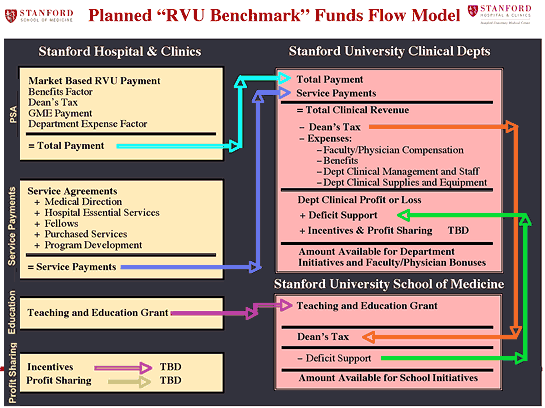

According to Kaiser Health News, there’s been a lot of chatter about the scheduled penalties for hospitals in the United States that had high readmission rates last year. These penalties are in the form of financial hard blows that hospitals with high readmission rates endure as a result of provisions in the Affordable Care Act that make Medicare payments contingent upon care quality. Hospitals named to the CMS’s naughty list stand to lose up to 2% of their Medicare reimbursements.
- 1. Readmission Causes: They Don’t Know The Community They Serve
- 2. Readmission Causes: They Didn’t Make Sure Patients Follow-Up Post Discharge
- 3. Readmission Causes: They Didn’t Educate The Patient While They’re Still In House
- 4. Readmission Causes: The Providers Didn’t Dictate Completely, in a Timely Fashion, or At All
- 5. Readmission Causes: The Patient Was Discharged Without Full Comprehension of Their (New or Old) Medication Regimen.
Hospitals nationwide are being penalized, but what do they have in common? How can your hospital avoid or lower your readmissions and escape CMS penalties? While there are plenty of complex reasons for high rates of readmission, there are plenty that are preventable. Here are the Top 5 Mistakes made by hospitals who top this list.
1. Readmission Causes: They Don’t Know The Community They Serve
One major stumbling block for hospital systems is understanding the unique healthcare needs of the communities they serve. Imagine a hospital in the middle of a city that is skilled and competent with elderly patients but sees a large number of otherwise healthy young people who have been involved in gang violence: they see gun shot wounds, stabbings and car accidents that constitute major traumas. If most of their ER patients are trauma cases, and the city they live in is a relatively “young” one, then priding themselves on having excellent geriatric care doesn’t mean much to the population the serve. On the other hand, if a rural hospital in a community with a lot of retirees prides themselves on traumas, of which, they have just a handful a year, but several times a day they treat elderly patients with chronic conditions, it’s the same idea but in reverse. It all comes down to whether or not a hospital understands, and subsequently serves, their community.
2. Readmission Causes: They Didn’t Make Sure Patients Follow-Up Post Discharge
This can be tough. Sometimes, hospitals or offices will fight back with “Well, we tried, but no one answered the phone.” Did you only call once and stop? Were you bogged down by other patients? Was there anyone else available to shoulder the job of following up with recently discharged patients? It might seem like common sense, but for many, enforcing follow-up even in the form of a phone call can be a tricky balancing act between having one foot in last week’s patients in one foot in the new admits who require attention and focus. This is where case management becomes essential to reducing readmission rates. These folks work with caregivers and providers to act as an intermediary between the patient and their support system and the physicians who treated them; plus, throw in any providers who might be treating the patient down the line, such as a specialist they’ve been referred to. Investing in case management programs, and internally supporting them, are vital assets to any hospital, but seemingly not a priority in many, despite demonstrable efficacy in reducing readmissions.
3. Readmission Causes: They Didn’t Educate The Patient While They’re Still In House
Again, it might seem intuitive, but education for the patient before they leave the hospital is essential not only to patient safety, but is usually a precursor for discharge- not to mention it’s tied to medical necessity and reimbursement. If a patient is, for example, a newly diagnosed diabetic, nursing staff, endocrinologists and the patient’s primary care doctor all need to coordinate not only the patient’s hospital care, but work together to closely define the next steps necessary to keep the patient healthy. They need to know what to expect when they leave the hospital, what supplies they might need, which doctor to call if they run into problems – and a clear and definitive list of symptoms that warrant an emergency room visit in lieu of an office call. If the patient doesn’t have family nearby, or their support system is limited, then arrangements for visiting nurses or home care may be needed before the patient can be discharged.
4. Readmission Causes: The Providers Didn’t Dictate Completely, in a Timely Fashion, or At All
The most vital element of a patient’s inpatient chart may well be their discharge plan and instructions. Without these key documents, the patient, their family and subsequent providers will need to play a guessing game as to what the patient needs to stay healthy. Strictly speaking, a patient shouldn’t be discharged from the hospital to home, or another facility, without some documentation in place. With transitions to an electronic omnipresent record in place, there are sometimes great lapses in when the provider dictates a report to when a report shows up in a patient’s chart. If it’s MIA for a few days and the patient returns, a new hospitalist or even the same provider may be hard-pressed to conjure up the details of a specific patient. If the documentation hasn’t even been done, they are even further behind should complications arise. Even if no complications arise for a patient, timely and accurate documentation is the touchstone of clinical coding and reimbursement. Without it, the hospital will continue to lose money and face penalties.
5. Readmission Causes: The Patient Was Discharged Without Full Comprehension of Their (New or Old) Medication Regimen.
If not the most important factor in readmission, medication reconciliation is clearly one of the most pressing factors for patient safety, hospital utilization and quality. With electronic medical records there are some stop-gaps that allow any provider working in a patient’s chart to (hypothetically) reconcile patient meds with a few clicks. In practice, we know it’s rarely so simple, especially with patients who have a seemingly endless list of medications. It’s hard enough for a provider (and their trusty steed of a computer) to reconcile what meds go where, but how can anyone expect a patient to? Every day? Especially when they are sick or injured. The priority of any healthcare professional working with a patient – when it’s in their capacity to do so- should be to address the patient’s medications, their concerns, and illicit from them exactly how they are taking those meds. The truth is, even if a prescription is in the EMR, it doesn’t mean it’s correct, or, even if it is, that it reflects how the patient interprets it. Some patients may feel that dosages and times are somewhat flexible, even if that’s not what the prescribing doctor intended, so it’s of utmost importance to find out exactly how patients are taking their meds- and adjust any new meds accordingly. In order to further educate patients, you can never assume that a patient knows the difference between medications, has innate knowledge of side effects or is even educated enough to make an informed decision when presented with choices. Patients, and their families, will always appreciate simple, direct explanations, preferably with visuals and hands-on experience when available, particularly for new “hardware” like insulin pumps, blood sugar meters, colostomies or catheters.
As the healthcare system continues to reform, we must all adjust our thinking and shift to value-based-concepts of payment. When considering readmissions, we need to look honestly and broadly at our organizations to really parse out areas of repeated weakness and vulnerability. Not just to avoid penalties, though the financial incentive looms large- but so our patients and the communities we serve can be healthy. Temporarily avoiding the financial pinch is fine, but it’s not sustainable.









